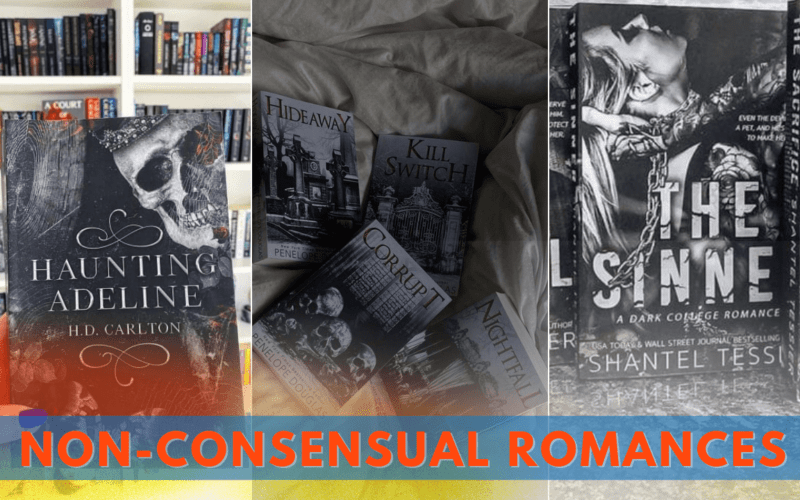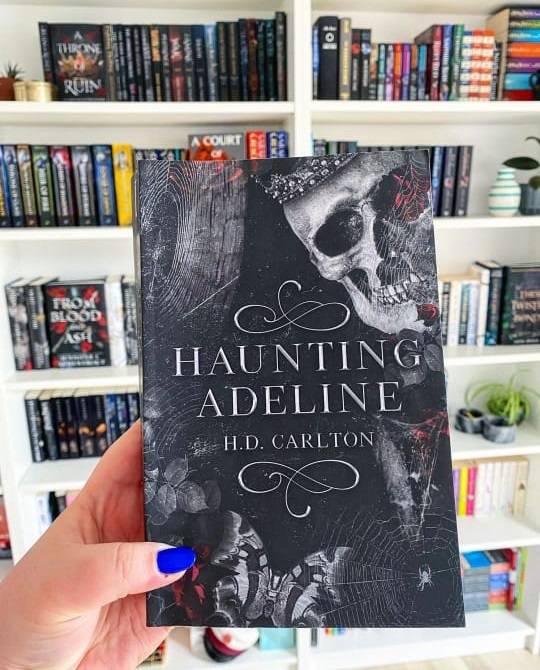Non-consensual romances, often shown in literature, film, and television, have long been a subject of controversy and debate. While some argue that these narratives romanticize problematic behavior and perpetuate harmful stereotypes, others contend that they serve as ways for exploring complex human relationships.
Noncon and dubcon scenarios often highlight power imbalances between characters, whether it’s societal or personal. This exploring can put light on issues like abuse, manipulation, and coercion.
Characters involved in non consensual or dubiously consensual situations are often forced to face their own vulnerabilities, desires, and moral boundaries. These experiences can catalyze deep internal conflicts and character growth, as individuals cope with the consequences of their actions and navigate the gray waters of consent, coercion, and morality. Through the different portrayal of these characters’ struggles, literature can offer awareness into the complexity of human nature and the choices people make under pressure.
Noncon and dubcon scenarios naturally generate intense conflict and tension within the narrative, driving the plot forward and holding the reader’s attention. Whether it’s the suspense of a character’s moral dilemma, the fear and uncertainty surrounding an abusive relationship, or the expectancy of a climactic confrontation, these themes charge the story with emotional depth and narrative momentum. By burying readers in the stormy experience of these conflicts, literature can elicit a range of emotions, from empathy and outrage to discomfort and unease, thereby building a deeper engagement with the text.
Literature has the power to spark self reflection and stimulate talk about complicated ethical and moral issues, and nonconsensual and dubiously consensual themes are no exception. By presenting morally ambiguous situations and challenging readers’ preconceived notions about consent, autonomy, and power, literature invites them to handle difficult questions and confront uncomfortable truths. Through this process of ethical and moral exploration, readers may gain new perspectives, redefine their beliefs, and develop a deeper understanding of the variations inherent in human relationships and interactions.
Nonconsensual and dubiously consensual themes often cross with taboo subjects and controversial topics that society may prefer to avoid or ignore. By daring to talk about these taboos head-on, literature can shake conventional narratives, challenge established attitudes, and spark conversations that might otherwise remain unspoken. While the portrayal of such themes may build discomfort or controversy, it also has the potential to fuel empathy, awareness, and social change by shining a light on issues that demand attention and action.
It’s crucial to emphasize that the portrayal of nonconsensual or dubiously consensual scenarios in literature should always be approached with sensitivity, empathy, and an awareness of the potential harm it may cause to readers who have experienced similar situations. Authors have a responsibility to handle these themes with care, avoiding very overly graphic depictions of violence or exploitation and prioritizing the well-being and dignity of all individuals involved. Additionally, readers should engage critically with these themes, recognizing the difference between fictional narratives and real-life experiences, and pursuing resources and support if they are affected by the content they read. Ultimately, while these themes may bring controversy, their exploration in literature can contribute to a richer understanding of the complexities of human nature and relationships.
Analyzing and reflecting on the portrayal of nonconsensual and dubiously consensual themes in literature can encourage critical thinking and moral reasoning. Readers may tussle with questions of consent, and accountability, sharpening their ability to evaluate complex ethical issues and make faithful judgments.
Literature can serve as a platform for raising awareness about sensitive topics such as abuse, coercion, and manipulation. By sensitively and thoughtfully exploring these themes, authors can shine a light on the frequency and impact of such experiences, building greater understanding and empathy among readers and contributing to efforts to combat stigma and silence surrounding these issues.
For those who have experienced similar situations, reading narratives that validate their experiences and emotions can provide a sense of validation and relief. Seeing characters navigate and overcome challenges related to consent and boundaries may offer hope, catharsis and inspiration, while also reinforcing the message that they are not alone in their struggles.
Authors who explore nonconsensual and dubiously consensual themes in their work often do so with the intention of creating complex, thought-provoking narratives that challenge traditional storytelling conventions. By pushing boundaries and facing taboos, literature can push the boundaries of artistic expression and contribute to the evolution of literary culture.
Overall, while reading literature that includes non consensual and dubiously consensual themes may be emotionally challenging or triggering for some individuals, it can also offer opportunities for growth, reflection, and solidarity.
These themes in literature often introduce complex moral dilemmas that challenge characters and readers alike
Central to many noncon and dubcon situations is the issue of consent and individual autonomy. Characters may be faced with decisions that test their integrity, forcing them to confront questions such as: What makes consent? Can consent be given under duress or manipulation? Is it ethical to pursue one’s desires at the expense of another’s autonomy? Readers, in turn, are invited to reflect on their own understanding of consent and the importance of respecting others’ boundaries. Noncon and dubcon scenarios frequently highlight differences in power and privilege, whether it’s between individuals or social groups. Characters may exploit their positions of authority or leverage their influence to manipulate others, raising questions about the ethical use of power and the responsibility of those in positions of privilege to consider the well-being of others. Readers are prompted to examine the dynamics of power and privilege in society and reflect on their own roles and responsibilities in relation to those around them
Nonconsensual and dubiously consensual themes inherently present ethical dilemmas and moral ambiguity that defy easy categorization. Characters may find themselves caught between competing values or conflicting duties, struggling to parallel their desires with their principles. Readers are challenged to navigate the gray areas of morality, confronting the complexity of human behavior and the inbuilt messiness of ethical decision-making. Exposure to noncon and dubcon themes can have a psychological impact on readers, triggering emotional reactions, arousal, or distress, particularly for individuals who have experienced similar situations in their own lives. While literature can provide a safe space for exploring challenging topics and processing difficult emotions, it’s important for readers to practice self-care and seek support if they feel overwhelmed or triggered by the content.
Reading literature that explores nonconsensual and dubiously consensual themes can broaden readers’ perspectives and challenge their assumptions about power, consent, and morality. By presenting morally ambiguous situations and complex characters, literature encourages readers to consider alternative viewpoints and empathize with individuals whose experiences may differ from their own, fostering greater tolerance, understanding, and open-mindedness.
Nonconsensual (noncon) and dubiously consensual (dubcon) themes have seen growth as a genre due to their exploration of taboo subjects, diverse representation, psychological depth, subversion of tropes, the rise of online communities and self-publishing, and a commitment to inclusivity. These narratives push the boundaries of traditional storytelling, offering differential portrayals of power dynamics, interpersonal relationships, and ethical dilemmas. By delving into the psychological motivations and emotional complexities of characters involved in challenging situations, noncon and dubcon literature provides readers with thought-evoking narratives that resonate with those seeking depth, complexity, and diversity in their reading experiences. As authors and readers continue to indulge with these themes in a sensitive, empathetic manner, the genre is likely to continue evolving and expanding to reflect the rich crowd of human experiences and perspectives.
boundaries are violated, coercion is present, or consent is ambiguous, noncon and dubcon narratives push readers to grapple with the difficulties of moral decision-making.
Throughout history, discussions of nonconsensual (noncon) and dubiously consensual (dubcon) themes have often been met with shame, silence, and stigma due to societal taboos and cultural norms surrounding sexuality, power, and agency. These topics were frequently marginalized, censored, or outright banned, particularly in more conservative or morally rigid societies.
Many societies, particularly those influenced by conservative religious beliefs, have condemned noncon and dubcon themes as immoral or sinful. Such narratives were often seen as promoting corruption or undermining traditional values of chastity, fidelity, and marital sanctity. Consequently, discussions of these themes were suppressed or restricted to avoid scandalizing or offending public sensibilities.
Noncon and dubcon themes have historically been surrounded by cultural taboos and social stigma, with victims often facing blame, shame, and exclusion rather than support or justice. Victims of sexual assault or coercion were frequently silenced or disbelieved, while perpetrators were shielded from accountability by societal attitudes that minimized or excused their actions.
In many societies, laws and regulations were enacted to censor or suppress literature, art, or media that depicted noncon or dubcon themes. Works deemed explicit, indecent, or morally corrupting were subject to censorship or outright prohibition, limiting the expression of authors and artists and perpetuating a culture of silence around these topics.
The shaming of noncon and dubcon themes has also been closely tied to gender and power dynamics, with patriarchal societies often prioritizing the protection of male authority and sexuality at the expense of women’s autonomy and agency. Women who spoke out against non consensual experiences risked being labeled as promiscuous, hysterical, or morally deficient, while men who performed such acts were often shielded from consequences by their social and economic status.
Over the years, the shaming surrounding discussions of nonconsensual (noncon) and dubiously consensual (dubcon) themes has gradually reduced,
Broader cultural shifts in attitudes towards sexuality, gender, and power dynamics have contributed to a reduction in the shaming of noncon and dubcon themes. Movements advocating for gender equality, LGBTQ+ rights, and social justice have challenged traditional norms and stereotypes, making a more inclusive and empathetic understanding of diverse sexual experiences and identities.
Increased media representation of noncon and dubcon themes, particularly in literature, film, and television, has helped to normalize discussions of these topics and humanize the experiences of survivors. By portraying nuanced and empathetic depictions of characters navigating challenging situations, the media has played a crucial role in fostering empathy, understanding, and solidarity among audiences.
Educational initiatives focused on consent, healthy relationships, and people intervention have helped to educate individuals and communities about the importance of respecting boundaries and intervening to prevent sexual violence. By promoting open awareness and providing resources and support, these programs have contributed to a greater sense of empowerment and agency among individuals, reducing the stigma associated with discussions of noncon and dubcon themes.
Nonconsensual (noncon) and dubiously consensual (dubcon) themes in literature can offer valuable understanding and benefits for readers when approached thoughtfully
Characters navigating noncon or dubcon situations often undergo profound personal growth and transformation throughout the story. Witnessing their journey can be emotionally gripping and intellectually stimulating, allowing readers to empathize with their struggles and appreciate their resilience.
These themes raise important ethical questions about consent, boundaries, and accountability. Engaging with these themes encourages readers to critically examine their own beliefs and values, blooming moral reflection and empathy towards survivors of abuse or coercion.
Beyond their thematic content, many books that explore noncon and dubcon themes are well-crafted works of literature with compelling characters, rich storytelling, and thought-provoking themes. Appreciating these books for their artistic merit can provide readers with a deeper appreciation for the complexity and depth of human experience.
Seeing characters confront and overcome adversity can resonate deeply with survivors of similar experiences, offering a source of comfort, validation, and hope for healing.
Masterpieces often feature characters with multifaceted personalities and conflicting motivations. These characters may exhibit both admirable and morally questionable traits, blurring the lines between heroism and villainy. Readers are compelled to cope with the ambiguity of characters who defy easy categorization, challenging traditional notions of morality.
frequently present characters with difficult ethical dilemmas that lack clear-cut solutions, they often push the boundaries of societal norms and conventions by exploring taboo subjects such as violence, sexuality, and power dynamics. By confronting readers with uncomfortable truths and challenging moral taboos, these works prompt deeper reflection on the complexities of human nature and society.
Attitudes towards morality, ethics, and social norms vary across time and place, influencing the way in which authors explore moral ambiguity in their work.
As discussions about noncon and dubcon romances continue to evolve, it is important for readers, authors, and critics to engage in open dialogue, respectful debate, and critical reflection. By building a culture of empathy, understanding, and consent, the literary community can work towards creating a space where diverse and different perspectives are valued, difficult topics are addressed with sensitivity and integrity, and stories of love, resilience, and empowerment are celebrated in all their complexity.





